Present Phase, the latest offering from A.M. Boys producers Chris Moore and John Blonde, traverses a sun-bleached California '80s boardwalk arcade pop soundtrack to luminous experimental post-punk. Throughout, perfectly articulated reverb swells along moody, spacious key arrangements. Synths are plentiful here—and not sampled synths. There's a glorious mixture of both vintage and modern varieties, from multiple Rolands to a Prophet-5.
The opening track, "Ocean Ocean," is an upbeat Malibu surf lullaby with cascading synth waves mirroring the peaks and troughs of its namesake. From there, "Pulsing Crystal" offers a glowing counterpoint to drab iPhone ringtones, "From My Life" is a shadowy musing on distance, and the slow build of "Wounded Wrestler" is buoyed by spare arrangement. The lo-fi stunner "We'll See the Moon Again" closes the album with a wallowing organ. I'm often compelled to hit play on the opening track once again when the final tones of the album dwindle to silence.
What's especially remarkable about Present Phase is how it hovers on the cusp of cinematic, digestible, utterly licensable pop appeal—and is also a soundtrack for the interior and the insular. It's at once extroverted and introverted; ambiverted, if you will.
I met with Chris and John to discuss their production process for Present Phase, their fortuitous introduction at a 2014 Aphex Twin listening party in New York, vintage synths, Berlin record stores, and anti-capitalist sentiment.

Sara Crow: Hello, A.M. Boys. Chris, what's your role in production?
Chris Moore: John and I both write music and create everything together. He's the only one who sings, and I'm the only one who does the audio mixing. But in terms of production and performance, we both do everything.
Sara: Present Phase is a really interesting album. There's a lot of restraint and simplicity, and also little flourishes and unique time signatures that I often associate with very advanced producers. What is your experience with production? It sounds like you've been at it for many years.
Chris: Yeah, I've done a lot of recording and mixing for bands, and production as well. I made a lot of music myself throughout the '90s, until today.
Sara: Can you walk me through your experience?
Chris: I started off just making solo instrumental electronic music inspired by Aphex Twin as While. Then I put out a few solo records on independent labels in Germany and the US.
Sara: Which labels?
Chris: Chocolate Industries out of Miami, Musik Aus Strom out of Germany, and SKAM in the UK. After that, I got into recording and mixing other bands like TV on the Radio. Then, about ten years ago, I met John, and we gradually started playing shows and making tracks together.
Sara: How did you two meet?
Chris: Actually, we were both at an Aphex Twin listening party in 2014. A mutual friend of ours was there, and he introduced us, saying that we would get along. He was right.
John Blonde: That's for sure.
Sara: John, you do a lot of the vocals. Is that correct?
John: I do all of the vocals. But I'm also playing synthesizers, depending on the song. I might come up with an initial drum pattern. We take my demos for some songs and make them full-blown tracks. But I feel like we each have equal weight when we're together—in ideas, contributions, and everything. Even though I'm singing the vocal songs, I always feel like I'm not dominating. I feel like we've got a good division of labor.
On a track like "Ocean Ocean," I wrote the song and then brought it to Chris, and it became an A.M. Boys track. I'm playing synths and singing. But Chris is part of that song, too. I think when you have a singer in a band, people think that that's all you do, is be the singer. But I feel like singing for me is the last thing that I think about when it comes to a track, even when I'm by myself. In the case of "Ocean Ocean," the vocal is usually the last thing I do before I leave that night when I've written the song, because I have it in my head the whole time that I'm putting the song together. I know what the melody is going to be, and I just wait until the end, if the music's there for me to sing on top of. Then I'll cut it in a real studio. We cut all the vocals with Jeff Berner of Psychic TV’s Studio G, and he's got this great old microphone that he told me was the same type that Frank Sinatra used.
Sara: Talk to me about the other hardware and software you're using, and especially the synths, because I can always tell if it's an actual vintage synth versus a sample of a vintage synth. It sounds like you're using the real thing.
John: Yeah, everything is either vintage or new analog synths and drum machines. There are no plug-in instruments. No sounds came from the computer.
Sara: Legit. Specifically, what equipment are you using?
John: Well, my main synths are the Roland SH-2, which is, I believe, from 1979, and the Roland Juno-60 from 1982. We've got a Sequential Prophet-5 reissue, and an Oberheim OB-6. There's also an Ensoniq ESQ-1, Roland TR-8S, and Behringer VC340 vocoder.
Sara: That's quite a studio.
John: And we've got a Roland Alpha Juno-1.
Chris: Which is not on the record.
John: Yeah, I'm just looking around the studio. But one thing that we have that I think is super cool is a genuine Roland Space Echo with the tape inside. We got it refurbished by Soundgas in the UK. They refurbish a lot of old equipment, and they specifically caught my attention because they are the premier company for refurbishing Roland Space Echoes. We have one of those on the record. It's not an instrument itself, technically, but I feel like we use it like an instrument. Maybe, Chris, you can talk about that a little bit.
Chris: Well, the Space Echo is commonly used for dub echoes. It's one of those things where you can get it feeding back, and it just makes its own scratchy and weird noises. It's more something that's a featured sound by dub artists, rather than just like a little light space to put in the background.
Sara: What tracks on the album specifically use it?
Chris: Probably all of them. It's on the vocals, sometimes, especially on "Remember Who You Are." At the end of that song, it trails off into a really distorted echo. Also in the title track, "Present Phase," a lot of the drifting synths are run through it. On "My Life," as well, a lot of the crackly lo-fi ambiance is from that.
Sara: That's somewhat reminiscent of the duo Rhythm & Sound.
John: I think what's great about all of the instruments we've just mentioned is that even though some of them could be described as traditional instruments in a certain way, we treat it all as noise. Initially, it's not really about chords and songwriting. When we first get started on a song, the noise will dictate where the session goes, or even where the song might go. If you get a good sound, okay, then all of a sudden, you're going to play a chord, or you're going to play a note, or a melody might hit you, or it locks into a beat a certain way. I think that the sound of things is so important. When I say that the Space Echo is an instrument, it's because it's a noise generator, just like everything is. I think I learned that from Throbbing Gristle.
Throbbing Gristle are probably for us, as a band and as friends, one of the most important groups because of their approach. They looked at everything as noise, but, on certain songs, they were also kind of pop songwriters, and they had a serious experimental streak. On their album 20 Jazz Funk Greats, there is no jazz or real funk on the album. That's, to me, their masterpiece. Specifically, the song, which is not on that album, called "United"—I think we tap into that as A.M. Boys: a lot of our stuff could be labeled or played alongside a track like that.
Sara: Talk to me a little bit about how your collaboration works if you're not in the same city. Do you travel to be in the studio together? Or how do you collaborate when you're not in the same place?
Chris: This whole record was done when I lived in New York. It's mostly a full in-person collaboration. Some of the songs John started on his own as demos, pretty much all the vocal songs, I think, and then we flesh them out together. The other songs were written completely together live, either as a jam, or we do a thing where I'll record a track, and then John will record something that responds to that, and then I'll add something. A lot of the instrumentals are written in that way.
Sara: So it sounds like sometimes you take a tandem approach, where you're not in the studio together, but collaborating separately. Is that right?
John: Yeah. For whatever reason, the vocal songs I tend to write by myself. It's probably just because when I'm with Chris in the studio together, and we're doing an instrumental track, or we're jamming or something like that, there's so much going on that's exciting that you don't need my voice. When I'm by myself, I can get an idea down vocally much quicker sometimes than I can via an instrument. Sometimes the enunciation of the words is part of the hook for me. That's not necessarily collaborative. But then, once I send the track to Chris and we decide we're going to work on that song together, then it becomes collaborative.
I feel like we're always collaborative in the sense that we share ideas constantly, even if we're not in the same space or now in the same city. We talk every day, we text every day, and we share music all week long. I usually have a track a week that I send out. I just feel like there's a constant dialogue with Chris and me musically and personally, and I think that communication comes across in our music.
Sara: What about music discovery? How do you discover new music?
Chris: I guess through social media. I follow some distributors, some record labels, music forums, and stuff.
Sara: What specific distributors and labels?
Chris: I follow Forced Exposure, which has a pretty wide variety of stuff. Most of the stuff that I listen to these days is experimental, electronic stuff, instrumental stuff.
John: I end up Shazam’ing a lot. I like to go to bars and clubs, and end up Shazam’ing, or sometimes talking to the DJ. I discover stuff in movies and TV shows. Chris sends me stuff. I have a lot of friends who send me stuff, which is great. I listen to everything everybody sends me, and I like to send stuff to people too. But as far as labels, I love Dark Entries, Warp, and Kompakt from Germany.
Sara: I love Kompakt. Do you like Perlon?
John: Oh, yeah! You know, Kompakt is celebrating 500 releases this summer, and they just put out this colorful vinyl 5x5 Kompakt 500 box. I'm so tempted to get it, and it's like $200.
Sara: I need that. I think I have some of their first releases that were, like, Dimbiman, Ricardo Villalobos, and Pantytec.
John: I have *Total 1*, which is, like, I probably wore those grooves into the ground, and I bought pretty much every Total every year since they started. The Pop Ambient series, I love that too, but my favorite artist on Kompakt is The Field. He ended up doing a lot of remixes for very famous bands like Radiohead and things like that. But his solo stuff, especially his first albums, got me into wanting to make electronic music myself. That came out in like 2007. When I heard that album, all of a sudden, a lot of stuff fell into place. He used a lot of analog samples. He abandoned his sampler after that first album, and his music never quite had the same groove to me. I like it, but he kind of replaced some stuff with live instrumentation, but the sampler—on that first album, he really knew how to use it.
Sara: Yeah, that was sort of a seminal period for minimal techno coming out of Germany.
John: I totally agree. I go to Berlin a lot, and there's a place there called Spacehall. This is a record store which is not like any record store in America, except maybe Amoeba. But imagine Amoeba, and it's all electronic music like that size, like that kind of warehouse feel. My friend is very good friends with the owner. You could play the records too, not like here—they don't have any plastic wrap, so you can listen to everything. They had, I think, like 25 turntables lined up so you could listen to albums, and they were all taken. I ended up being there for like a few hours, just listening to all the stuff and buying most of it.
Sara: That place sounds dangerous. Do you have any upcoming tours? What's next for you?
John: Well, it took a while to put this album together. Our first album came out in 2022, so it's been three years, and a lot has happened in our lives personally in that time. And putting this record together was really important for both of us. It feels like an accomplishment, and that it's being reviewed positively and being received positively is really great. We are talking about next steps, and Chris is going to come up to New York next month, and we're going to work on stuff. But it's almost anti-American to say that I don't want to think about what's next. I want to enjoy this moment.
Sara: Not very capitalistic of you.
John: I know. I know.
Check out more like this:
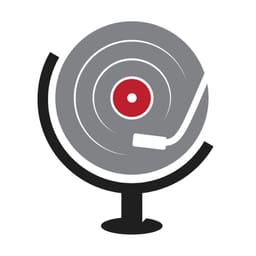 The TonearmArina Korenyu
The TonearmArina Korenyu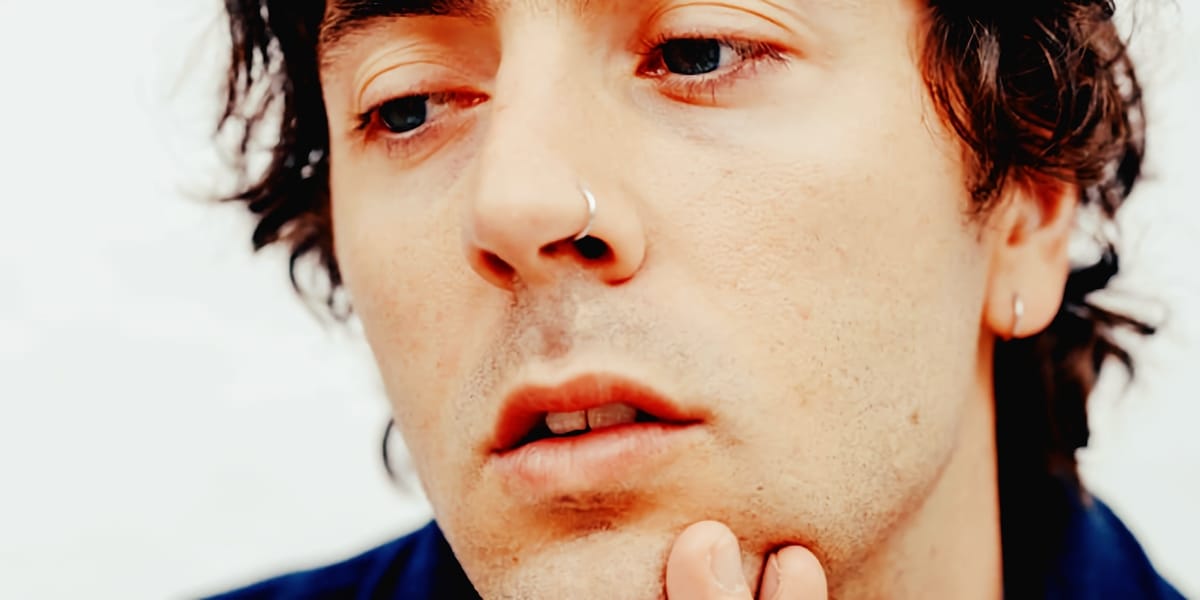
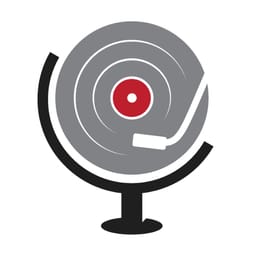 The TonearmSara Jayne Crow
The TonearmSara Jayne Crow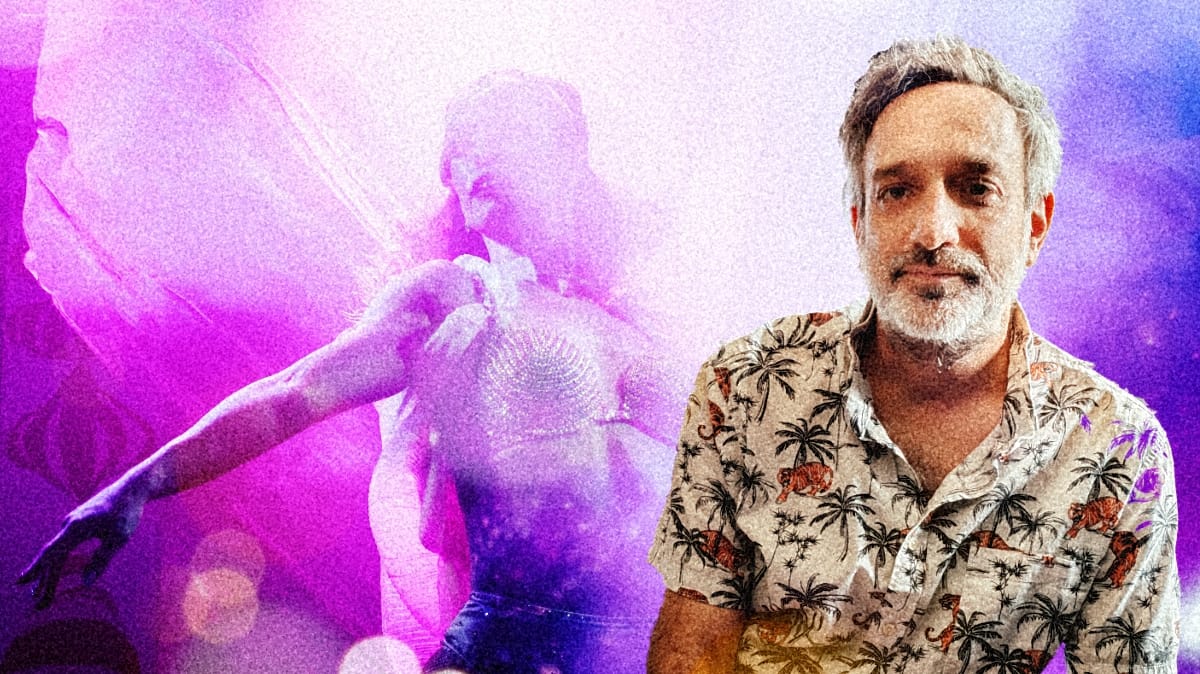


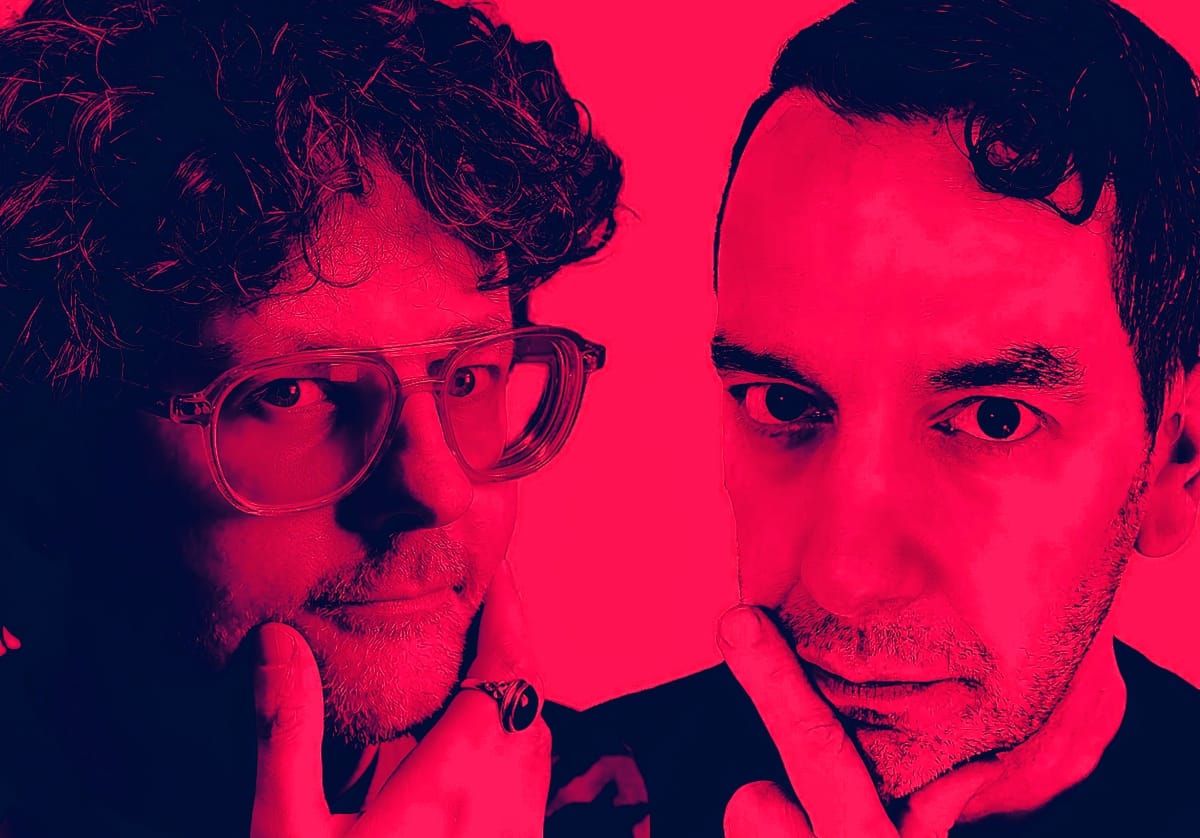

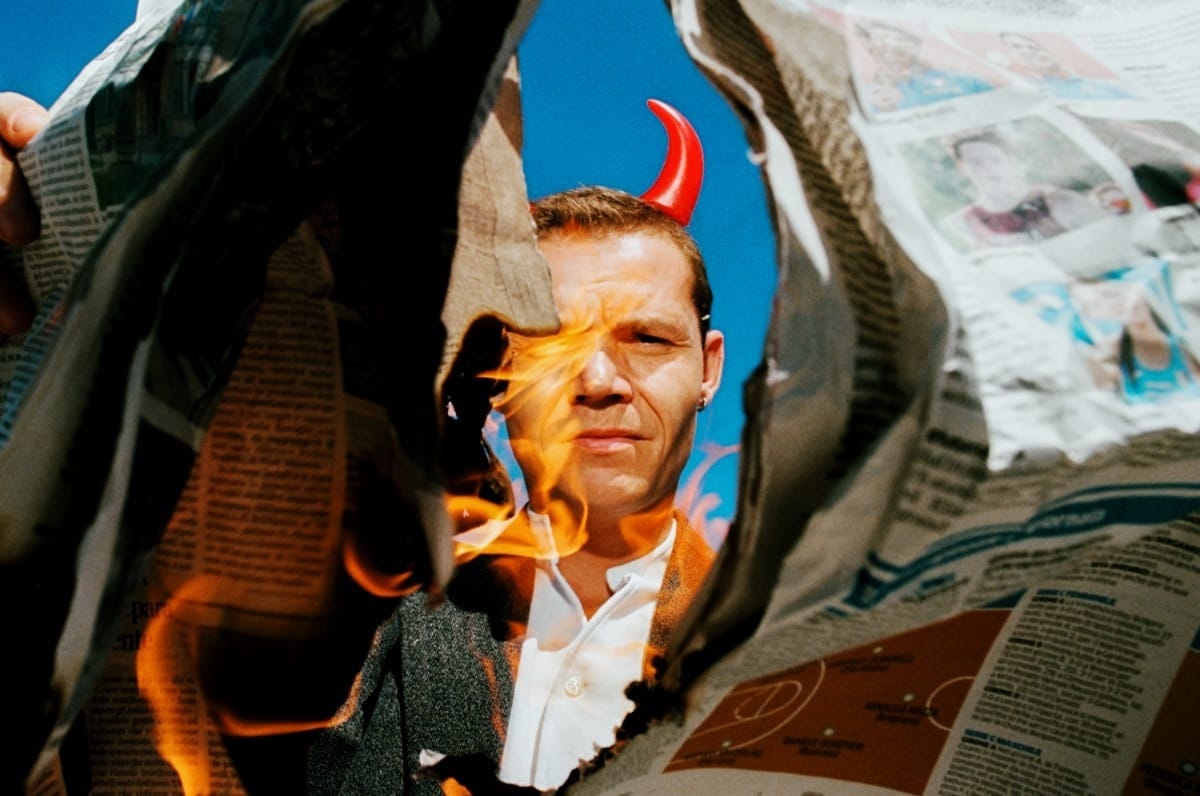

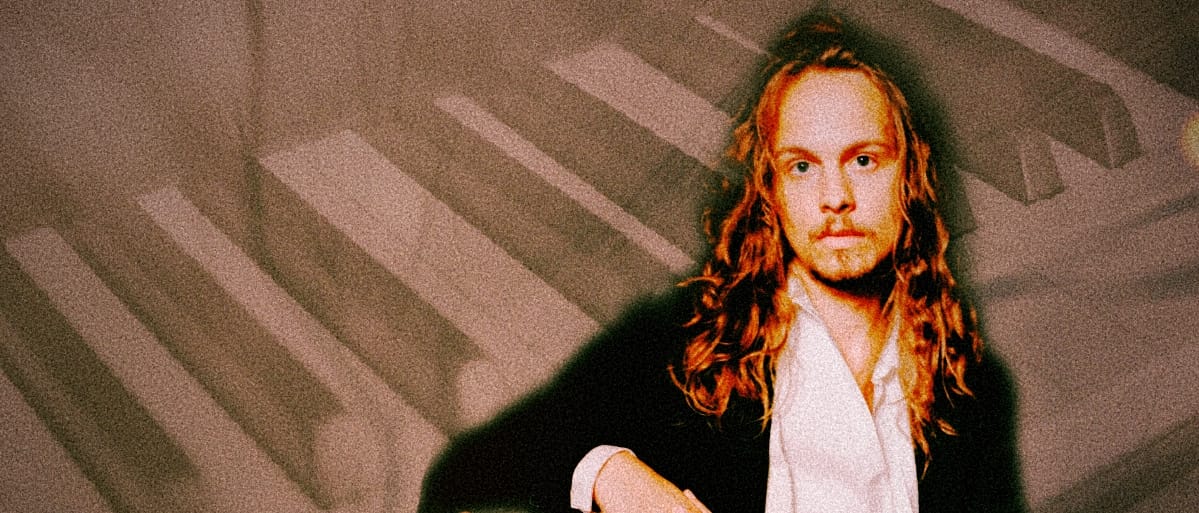
Comments